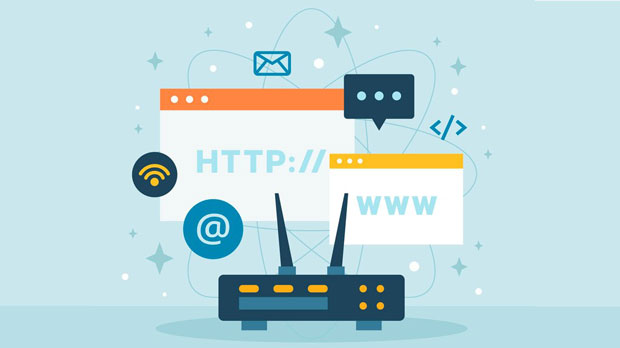In high-concurrency scenarios, the performance of PYPROXY combined with socks5 proxy on Android devices plays a critical role in ensuring both stability and speed. This setup is often used in web scraping, social media automation, and security research where multiple requests are being sent to a server simultaneously. Understanding how pyproxy interacts with sock s5 proxies in Android's constrained environment allows developers to optimize their applications for efficiency and reliability. High-concurrency environments require robust networking solutions to avoid delays, bottlenecks, or failures in data transmission. This article dives into how pyproxy and Socks5 proxies handle such scenarios, their limitations, and potential optimization strategies. Understanding Pyproxy and Socks5 ProxyTo appreciate the performance of pyproxy when paired with Socks5 proxies, it’s important first to understand the roles of both components.Pyproxy is a Python-based library that provides a simple interface for handling proxy connections. It allows users to route their traffic through various proxy servers, ensuring anonymity, security, and bypassing geographical restrictions. The core advantage of pyproxy is its ease of integration with various Python applications and its versatility in handling different types of proxy protocols.Socks5 Proxy is one of the most common proxy protocols. It supports various features like tunneling, encryption, and handling both TCP and UDP traffic, making it a robust solution for applications that require secure and private communication. Socks5 proxies are preferred in high-concurrency environments due to their ability to handle large volumes of data with minimal latency, especially when combined with technologies like pyproxy.Challenges of High-Concurrency EnvironmentsHigh-concurrency scenarios involve a large number of simultaneous requests to a server or network. Such environments can lead to several challenges, especially when working with mobile platforms like Android, which have limited resources compared to traditional desktop or server systems.1. Limited Resources on Android:Android devices often have limited processing power, memory, and bandwidth, making it harder to manage high-concurrency connections. This can lead to issues such as slower processing speeds, network congestion, and even crashes if the device cannot handle the load.2. Latency and Bottlenecks:When multiple requests are being routed through a proxy server, there is a risk of high latency. This is especially true for mobile connections, which are more prone to instability and interruptions compared to wired connections. Bottlenecks can occur at various points, from the device’s CPU to the network itself.3. Proxy Overhead:While Socks5 proxies are efficient, they still introduce some overhead due to the extra layer of communication. In high-concurrency scenarios, this overhead can accumulate, leading to slower request handling times and a reduced overall throughput.4. Connection Management:In high-concurrency applications, managing a large number of open connections becomes increasingly difficult. Without proper connection pooling, frequent opening and closing of connections can put unnecessary strain on both the client and server.Performance in High-Concurrency ScenariosThe performance of pyproxy with a Socks5 proxy in high-concurrency scenarios can be evaluated based on several factors, including request handling time, stability, scalability, and resource consumption.1. Request Handling Time:In high-concurrency scenarios, the ability to handle multiple requests concurrently is crucial. Pyproxy, by virtue of its integration with asynchronous libraries like `asyncio`, allows for non-blocking execution, which improves handling times. However, the added proxy layer still introduces some delays. On Android, the handling time can be affected by the device's processing limitations. In scenarios where hundreds or thousands of requests are being sent, the device's CPU can become a bottleneck, reducing the efficiency of the proxy handling.2. Stability:Stability is another critical performance metric, especially in environments where the proxy is handling a large volume of requests. Pyproxy’s reliance on Socks5 proxies enhances stability by supporting retries, connection pooling, and error handling. However, Android’s network stack can occasionally cause issues with connection stability, especially if the device is in a fluctuating network environment (such as 4G or Wi-Fi networks with poor signal strength). This can result in dropped connections or delays in response times.3. Scalability:Scalability is often a concern when moving from moderate to high-concurrency environments. Pyproxy’s ability to manage multiple proxy connections in parallel is essential here, but Android’s limitations can pose significant challenges. To scale effectively, it may be necessary to employ techniques like load balancing across multiple proxies or using multiple devices in a distributed setup. Without such strategies, scaling may cause performance degradation or application crashes due to overloading the device.4. Resource Consumption:In a high-concurrency setup, efficient resource utilization is key. Pyproxy and Socks5 proxies are relatively lightweight, but on resource-constrained devices like Android, their performance may degrade as they consume more CPU, RAM, and network bandwidth. Devices with limited resources might experience significant performance hits in terms of slower response times and higher power consumption, potentially impacting the overall user experience.Optimizing Performance for High-Concurrency ScenariosTo achieve optimal performance in high-concurrency scenarios, several optimization strategies can be applied.1. Connection Pooling and Reuse:One of the key strategies for improving performance in high-concurrency environments is connection pooling. By reusing existing connections instead of opening new ones for each request, the overhead of establishing a new connection can be significantly reduced. This is particularly useful when dealing with Socks5 proxies, which can incur significant latency during connection setup.2. Asynchronous Programming:To fully leverage pyproxy’s capabilities, developers should employ asynchronous programming techniques. Using `asyncio` or other asynchronous libraries can allow the program to handle multiple requests concurrently without blocking, improving the overall performance in high-concurrency situations.3. Load Balancing:For high-scale deployments, it’s important to distribute the load across multiple proxies. This can be achieved by implementing load balancing algorithms that ensure requests are routed through the least-loaded proxy servers. This will help avoid performance bottlenecks at any single point in the proxy chain.4. Resource Management on Android:On Android, managing system resources efficiently is critical. This involves monitoring the CPU and memory usage and ensuring that the device does not become overloaded. Developers can use Android’s native tools to track resource usage and optimize the app accordingly. Additionally, using a combination of Wi-Fi and cellular networks intelligently can help mitigate network congestion.5. Error Handling and Retries:To maintain stability under high load, it is essential to implement robust error handling and automatic retries. This ensures that temporary network issues or proxy failures do not disrupt the application’s performance.The performance of pyproxy when used with a Socks5 proxy on Android in high-concurrency scenarios depends on several factors, including the efficiency of the proxy, the Android device’s capabilities, and how well the system is optimized for high-load situations. While pyproxy and Socks5 proxies offer reliable and secure connections, the constraints of mobile devices require thoughtful implementation and optimization to ensure smooth operation. Through strategies like connection pooling, asynchronous programming, and resource management, developers can achieve significant improvements in performance, ensuring their applications remain stable and responsive even under heavy load.
Sep 20, 2025



































































